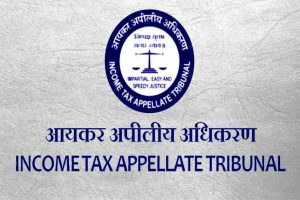Income Tax Appellate Tribunal, Mumbai: Dealing with the issue pertaining to rejection of books of accounts, sustainability of disallowance of labour charges, and disallowance of outstanding labour charges, the Gagan Goyal, Accountant Member has held that CIT(A) was correct and justified in rejecting the books of account by invoking section 145(3) of the Income Tax Act, 1961. Further, the Assessee has opted for a hybrid system of the account which is not permitted in under the Income Tax Act, 1961.
The Assessee in the present case is an individual, whereby in the returns she declared her total income of Rs. 56,48,200/-. The case was selected for limited scrutiny; subsequently, the case was converted from limited scrutiny to complete scrutiny. Statutory notices under sections 142(1) & 143(2) of the Income Tax Act, 1961 (for short ‘the Act') were issued.
The Assessee was asked to substantiate the labour expenses but the claim was not substantiated with any evidence and the said labour expenses remained unproved. Therefore, the claim for the labour expenses was rejected. The labour expenses to the tune Rs. 67,11,814/- i.e. 20% of Rs. 3,35,59,068/- considering the same as excessive in disallowed as an expense considering 20% disallowance as fair and reasonable and added back to the total income of the Assessee for the A.Y. 2015-16. Penalty proceedings were initiated separately u/s 271(1)(c) for furnishing inaccurate particulars of income.
Being aggrieved by the order passed by the AO, the Assessee preferred an Appeal before CIT(A).
CIT(A), allowing the ground of the Assessee, came to the conclusion that the books of account maintained by the Assessee were not correct and complete, hence, it was not possible to derive the correct income from the books of accounts of the Assessee and hence, books of accounts were rejected under section 145(3) of the IT Act.
CIT (A) also observed that the Assessee failed to maintain documents like job register, work control chart, labour card, etc. and also noted that the appellant has booked income on a cash basis whereas, in other instances, the same is accounted for on an accrual basis. The Income Tax Act, 1961 does not permit such a hybrid system of accounting as per section 145 of the Act.
Decision in CIT v. Mc Millan and Co. (1958) 33 ITR 182 (SC), was also relied on which empowers CIT (A) to reject the books of accounts of the Assessee by invoking the provisions of section 145(3) of the Act. Ld.
CIT(A) worked out the turnover of the Assessee at Rs. 9,50,35,865/- as against the turnover of Rs. 9,30,08,560/- offered by the Assessee. Ld. CIT(A) worked out the income of the appellant at Rs. 76,02,870/- being a sum of 8% on Rs. 9,50,35,865/-
Being aggrieved by the order passed by CIT(A) the Revenue preferred an appeal before the ITAT.
ITAT dismissed the appeal of the revenue and observed that in the given circumstances, CIT(A) rightly drew support from section 44AD in estimating the profit @ 8% of the Gross Receipts, in case of business of civil construction work. No perversity was found in the workings of various figures done by the office of CIT(A) and application of 8% Net Profit on gross receipts i.e. Rs. 9,50,35,865/- resulting in income of Assessee to be Rs. 76,02,870/-.
Sustaining the order of CIT(A) in both the terms i.e. rejection of books of accounts and applying Net Profit rate of 8% on the derived figure of turnover of Rs. 9,50,35,865/-, the ITAT directed that since the Assessee has already offered a sum of Rs. 56,73,522/- as business income in her return of income filed, only the balance sum of Rs. 19,29,348/- is required to be added.
[Asst. Commissioner of Income Tax-32(1) v. Sunitaben Shantilal Patel, ITA No. 111/Mum/2021 (A.Y. 2015-16)]
Advocates who appeared in this case :
Sh. B.K. Bagchi, Sr. DR, for the Appellant;
Sh. Jigaar Mehta, AR, for the Respondent.
† Report by: Akshat Malpani, Advocate, Supreme Court of India and Delhi High Court

